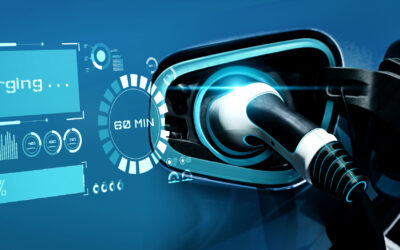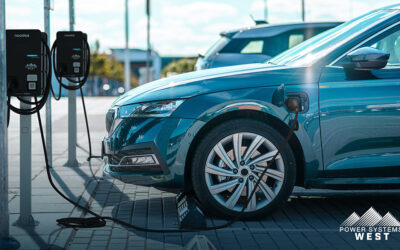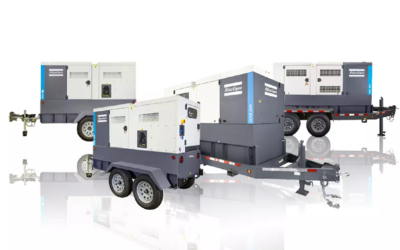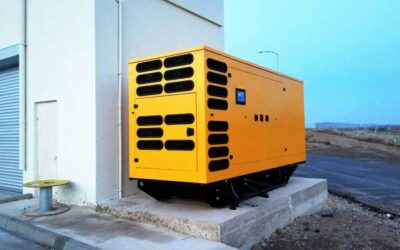“Charging the Future: Join the PSW team to learn about cutting edge EV charging solutions for your business” Category: Online EventDate: February 5th, 2024 Join us for an electrifying journey into the future of sustainable transportation at the...
What Size Generator is Needed to Power a House?
What Size Generator is Needed to Power a House?
Date: October 10th, 2022
Since the invention of power, we cannot remember how it was before. A few minutes without power frustrates and makes you feel non-functional. Unfortunately, natural disasters and other issues are bound to come between power in your house and the power grid.
If this happens regularly, you must consider power alternatives, including installing a generator. One question remains unanswered, though; what size of generator is needed to power a house?

What Size Generator Do You Need For Your House?
Several factors come into play when choosing the right size generator. For example, your neighbor might consume more power than you if they have more appliances to run. Here are three steps or factors to help you determine the ideal generator for your household.
Running Time
One of the things you should consider is the time your generator will run. If your area experiences power outages regularly, you need a generator with a long-life battery. That way, the generator can power your house until the next recharge.
Number of Appliances
When choosing the ideal generator, you must consider the number of appliances in your house. It would help if you listed these items, mainly because you need to write their wattages following a guide we will share below.
Most houses have refrigerators, light bulbs, security systems, microwaves, and stoves. These are some of the devices you might need every single day.
There are other items that you can either decide to use or halt their usefulness until power returns. These include AC, fluorescent lamps, transformers, battery chargers, clothes dryers, water heaters, and uninterruptible power supplies. Some houses have welding machines too.
Portable Vs. Standby Generator
Another decision you need to make is the convenience of the generator. There are two types of generators; portable and standby. The difference between these two is deceptive.
Portable generators can get pricey because they can use up to 20 gallons of gasoline or propane. Unless you have big storage nearby, it might be challenging to access the fuel during severe weather that (in the first place) put down electricity in your area.
You must connect a portable generator to a circuit breaker whenever you want to use it. The best thing is that it is portable, and you can move it to your most preferred position. Usually, these devices have trolleys to facilitate movement.
Some of these generators are not designed to withstand harsh weather elements. Therefore, it is on you to find measures to protect your generator.
Lastly, most portable generators are loud. This can disturb your peace of mind if you cannot tune it out. Also, these devices cannot power some appliances.
Standby generators use natural gas or propane. Usually, a professional install this device outside your house. In other words, standby generators have weatherproofing characteristics.
Standby generators switch on automatically when the power goes out. They can power all devices, allowing you to use all appliances instead of choosing what to run or not. Apart from that, standby generators last longer than portable generators.
Cost
It is crucial to consider your prize for the generator too. The piece of advice is to look at the value the generator provides over the long term. So, do not go for a cheap generator and spend thousands of dollars repairing it or spending more money upgrading it.
Several factors determine the price of a generator.
Other factors determining the cost include brand and installation. A whole house generator might also cost more than one for several devices.
Starting Watts and Running Watts
In your search for a generator, you will come across two terms, starting and running watts. Starting watts is the wattage needed to start an appliance. For example, starting watts for clothes dryers is 6,570.
Starting watts are usually higher than running watts or the same. If the watts are high, a surge occurs briefly, typically for two to three seconds.
We mentioned earlier that you might need a circuit breaker to use a portable generator. Usually, a standby generator is already connected by a professional to ensure no errors.
On the other hand, running or rated watts are the wattages needed to run a device. It is the constant wattage that a device needs to continue running. For example, a clothes dryer needs 5,400.
How to Calculate the Wattage Needed
Earlier, we mentioned that a generator’s size is measured in watts. You need the starting and running watts to determine the size of your ideal generator. Here is a table showing some appliances and their wattages.
| Appliances | Starting watts | Running watts |
| Refrigerator | 2900 | 700 |
| Electric water heater | 4500 | 4500 |
| 2 46“ TV | 380 | 380 |
| Microwave oven | 1300 | 1300 |
| Over eight light bulbs | 1100 | 1100 |
| AC | 8750 | 3800 |
| Security system | 550 | 550 |
| Garage door opener | 1420 | 720 |
Going by this table, you need at least a 20,900-watt generator. This is for running only the vital appliances.
You might need a bigger one to add more appliances to the system. You might need a stronger generator if you want these appliances to run concurrently.
You can quickly calculate the wattage needed in your house by looking at the labels on your appliances. The information can be listed in amps too. So use the formula below to calculate the watts.
Watts (electrical power) = Volts (voltage) * Amps (current)
Get Your Kohler Whole House Generator Today
Apart from “what size generator is needed to power a house,” another question will pop into your mind; do you need a generator to power some equipment or the whole house? Buying a generator to power only essential devices might not be feasible because you will soon realize it is insufficient.
This leaves you with one other option; to go for a Kohler whole-house generator. At Power Systems West, we pride ourselves on diagnosing and providing power solutions to homes. Contact us at (800) 354-6767 to get a personalized quote.
Contact Us
Recent Blogs
Power Systems West Announces Strategic Partnership with Noodoe to Pioneer EV Charging Systems Across the Pacific Northwest and Rocky Mountain Regions
Power Systems West Announces Strategic Partnership with Noodoe to Pioneer EV Charging Systems Across the Pacific Northwest and Rocky Mountain Regions Category: Press Release – FOR IMMEDIATE RELEASEDate: January 19th, 2024 Portland, Oregon – Power Systems...
Introducing Power Systems West as the Premier Equipment Dealer for Atlas Copco Power Technique in the Pacific Northwest and Rocky Mountain Regions
Introducing Power Systems West as the Premier Equipment Dealer for Atlas Copco Power Technique in the Pacific Northwest and Rocky Mountain Regions Category: Press Release – FOR IMMEDIATE RELEASE Date: September 19th, 2023 Portland, Oregon – Power Systems...
Introducing HVO: Kohler’s Groundbreaking Whitepaper
Introducing HVO: Kohler’s Groundbreaking Whitepaper Category: Kohler PowerDate: July 7th, 2023 At Power Systems West, we are thrilled to introduce an exciting development in the world of power generation. KOHLER, a renowned engineering thought leader and...
Power Systems West Legends Racer Continues Winning in First Semi-pro Season
Power Systems West Legends Racer Continues Winning in First Semi-pro Season In spring of 2022, Power Systems West became the title sponsor for Leon Tridle III, a rookie on the U.S. Legends Cars International (USLCI) racing circuit. Although it was his rookie season,...
Maintenance Recommendations for Diesel Generators
Maintenance Recommendations for Diesel Generators Maintaining a diesel generator is key to its longevity and performance. Diesel generators provide reliable power sources at sites where electricity may not otherwise be available. To ensure that your diesel-powered...









